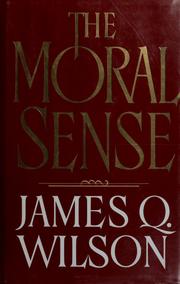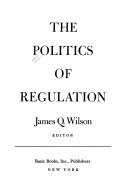| Listing 1 - 10 of 69 | << page >> |
Sort by
|
Book
ISBN: 0669076791 9780669076790 Year: 1986 Publisher: Lexington, Mass. Heath
Abstract | Keywords | Export | Availability | Bookmark
 Loading...
Loading...Choose an application
- Reference Manager
- EndNote
- RefWorks (Direct export to RefWorks)
Politics --- United States --- Politics and government --- United States - Politics and government --- United States of America
Book
ISBN: 0917616510 Year: 1983 Publisher: San Francisco ICS Press
Abstract | Keywords | Export | Availability | Bookmark
 Loading...
Loading...Choose an application
- Reference Manager
- EndNote
- RefWorks (Direct export to RefWorks)

ISBN: 0029354056 Year: 1993 Publisher: New York (N.Y.): Free Press
Abstract | Keywords | Export | Availability | Bookmark
 Loading...
Loading...Choose an application
- Reference Manager
- EndNote
- RefWorks (Direct export to RefWorks)
Ethics --- Moral development --- Social ethics --- Values --- Morale --- Développement moral --- Morale sociale --- Valeurs (Philosophie) --- Psychological aspects --- Aspect psychologique --- -Axiology --- Worth --- Aesthetics --- Knowledge, Theory of --- Metaphysics --- Psychology --- Social problems --- Sociology --- Ethical development --- Child psychology --- Moral education --- Faith development --- Deontology --- Ethics, Primitive --- Ethology --- Moral philosophy --- Morality --- Morals --- Philosophy, Moral --- Science, Moral --- Philosophy --- Ethics. --- Moral development. --- Social ethics. --- Psychological aspects. --- -Psychological aspects --- Développement moral
Book
ISBN: 0917616529 9780917616525 Year: 1983 Publisher: San Francisco (Calif.): Institute for contemporary studies
Abstract | Keywords | Export | Availability | Bookmark
 Loading...
Loading...Choose an application
- Reference Manager
- EndNote
- RefWorks (Direct export to RefWorks)
Crime prevention --- 343.9 --- -Crime --- Prevention of crime --- Public safety --- Criminologie --(algemeen) --- Prevention --- Government policy --- -Criminologie --(algemeen) --- 343.9 Criminologie --(algemeen) --- Crime prevention - United States

ISBN: 0465059678 Year: 1980 Publisher: New York (N.Y.): Basic Books
Abstract | Keywords | Export | Availability | Bookmark
 Loading...
Loading...Choose an application
- Reference Manager
- EndNote
- RefWorks (Direct export to RefWorks)
658.11 <73> --- Industrial policy --- -Trade regulation --- 339.5 (73) --- Business --- Industries --- Industry and state --- Economic policy --- Kinds and forms of enterprise--Verenigde Staten van Amerika. VSA. USA --- Buitenlandse handel. Internationale handel. Ruilvoet--Verenigde Staten van Amerika. VSA. USA --- Government policy --- 339.5 (73) Buitenlandse handel. Internationale handel. Ruilvoet--Verenigde Staten van Amerika. VSA. USA --- 658.11 <73> Kinds and forms of enterprise--Verenigde Staten van Amerika. VSA. USA --- Trade regulation

ISBN: 0465085490 Year: 1975 Publisher: New York (N.Y.) Basic Books
Abstract | Keywords | Export | Availability | Bookmark
 Loading...
Loading...Choose an application
- Reference Manager
- EndNote
- RefWorks (Direct export to RefWorks)
343.9 --- Crime --- -Criminal justice, Administration of --- -Administration of criminal justice --- Criminal justice, Administration of --- Justice, Administration of --- Criminal law --- Criminals --- City crime --- Crime and criminals --- Crimes --- Delinquency --- Felonies --- Misdemeanors --- Urban crime --- Social problems --- Criminology --- Transgression (Ethics) --- Criminologie --(algemeen) --- Law and legislation --- Social aspects --- -Criminologie --(algemeen) --- 343.9 Criminologie --(algemeen)

ISBN: 0465007848 0465007856 9780465007844 9780465007851 Year: 2000 Publisher: New York Basic Books
Abstract | Keywords | Export | Availability | Bookmark
 Loading...
Loading...Choose an application
- Reference Manager
- EndNote
- RefWorks (Direct export to RefWorks)
Bureaucracy is the classic study of the way American government agencies work and how they can be made to work better. Examining a wide range of bureaucracies, including the Army, the FBI, the FCC, and the Social Security Administration, James Q. Wilson provides the first comprehensive, in-depth analysis of what government agencies do, why they function as they do, and how they might become more responsible and effective. With a new introduction by the author.
Administrative agencies --- Bureaucracy --- 35.08 <73> --- 321.2 --- 350.0 --- US / United States of America - USA - Verenigde Staten - Etats Unis --- 35.08 <73> Ambtenarenrecht. Statuut van het openbaar ambt. Theorie van het openbaar ambt--Verenigde Staten van Amerika. VSA. USA --- Ambtenarenrecht. Statuut van het openbaar ambt. Theorie van het openbaar ambt--Verenigde Staten van Amerika. VSA. USA --- Economisch beleid van de overheid --- Organisatie van het openbaar bestuur: algemeenheden --- #SBIB:35H1122 --- #SBIB:35H200 --- Bestuurlijke organisatie: centrale besturen: Verenigde Staten --- Overheidsmanagement: algemene werken --- Public administration --- United States --- United States of America
Book
ISBN: 0669247707 Year: 1992 Publisher: Lexington Heath
Abstract | Keywords | Export | Availability | Bookmark
 Loading...
Loading...Choose an application
- Reference Manager
- EndNote
- RefWorks (Direct export to RefWorks)
#SBIB:328H31 --- Instellingen en beleid: VSA / USA --- United States --- Politics and government. --- Government --- History, Political --- Politics --- United States of America
Book
ISBN: 9780674045200 0674045203 Year: 1978 Publisher: Cambridge, Mass. Harvard University Press
Abstract | Keywords | Export | Availability | Bookmark
 Loading...
Loading...Choose an application
- Reference Manager
- EndNote
- RefWorks (Direct export to RefWorks)
The patrolman has the most difficult, complex, and least understood task in the police department. Much less is known of him than of his better publicized colleague, the detective. In this important and timely book, James Q. Wilson describes the patrolman and the problems he faces that arise out of constraints imposed by law, politics, public opinion, and the expectations of superiors. The study considers how the uniformed officer in eight communities deals with such common offenses as assault, theft, drunkenness, vice, traffic, and disorderly conduct. Six of the communities are in New York State: Albany, Amsterdam, Brighton, Nassau County, Newburgh, and Syracuse. The others are Highland Park, Illinois, and Oakland, California. Enforcing laws dealing with common offenses is especially difficult because it raises the question of administrative discretion. Murder, in the eyes of the police, is unambiguously wrong, and murderers are accordingly arrested; but in cases such as street-corner scuffles or speeding motorists, the patrolman must decide whether to intervene (should the scuffle be stopped? should the motorist be pulled over?) and, if he does, just how to intervene (by arrest? a warning? an interrogation?). In most large organizations, the lowest-ranking members perform the more routinized tasks and the means of accomplishing these tasks are decided by superiors, but in a police department the lowest-ranking officer--the patrolman--is almost solely responsible for enforcing those laws which are the least precise, the most ambiguous. Three ways or "styles" of policing--the watchman, the legalistic, and the service styles--are analyzed and their relation to local politics is explored. In the final chapter, Mr. Wilson discusses if and how the patrolman's behavior can be changed and examines some current proposals for reorganizing police departments. He observes that the ability of the patrolman to do his job well may determine our success in managing social conflict and our prospects for maintaining a proper balance between liberty and order.Table of Contents: 1. Introduction 2. THE PATROLMAN The Maintenance of Order Justice as a Constraint Some Organizational Consequences 3. THE POLICE ADMINISTRATOR Managing Discretion Critical Events 4. POLICE DISCRETION The Determinants of Discretion The Eight Communities The Uses of Discretion 5. THE WATCHMAN STYLE The Organizational Context Some Consequences 6. THE LEGALISTIC STYLE The Organizational Context Some Consequences 7. THE SERVICE STYLE The Organizational Context Some Consequences 8. POLITICS AND THE POLICE Politics and the Watchman Style Politics and the Service Style Politics and the Legalistic Style Some Findings from National Data 9. CONCLUSIONS AND POLICY IMPLICATIONS Reviews of this book: [This book] is a departure from the traditional treatise.and actually does take a large and long-awaited step toward revitalizing an exciting and important but inexcusably weak area of political science.--The American Political Science ReviewReviews of this book: This book "must unquestionably become an indispensable study of politics in the American city. It is based on enormous and detailed research . The material is presented in a controlled and disciplined no-nonsense style.--New York Review of BooksReviews of this book: This is surely one of the most informative books about the police ever written . Varieties of Police Behavior is a rich, sophisticated book by an author unusually able to tackle the comprehensiveness and interdependence of the issues which affect police performance, and his analysis and conclusions have much to teach.--Times Literary SupplementIt is, without doubt, the finest book on the American police ever written, and Professor Wilson is one of our best-known scholars of urban affairs.Rich.full to the brim with increasing details and shrewd insight. Anyone who wants to have an informed opinion about the policeman's relations to law and order ought to read it.--Irving Kristol
Book
Year: 1967 Publisher: Cambridge, Mass. : The M.I.T. Press,
Abstract | Keywords | Export | Availability | Bookmark
 Loading...
Loading...Choose an application
- Reference Manager
- EndNote
- RefWorks (Direct export to RefWorks)
| Listing 1 - 10 of 69 | << page >> |
Sort by
|

 Search
Search Feedback
Feedback About
About Help
Help News
News